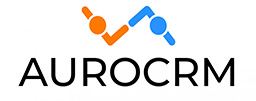In this digital world, one of the unique challenges for financial services is meeting customer expectations. With retail customers, you can’t just have a perfect checking account or lending conditions. You’ve got to offer good financial advice.
This involves having in-depth knowledge of each client, taking a tailor-made approach, and executing tasks faster than ever. Your corporate clients want goal-based planning strategic feedback, tailored outreach, and much more.
Since fintech creates seamless and personalized experiences for consumers (including in the banking domain), financial advisors in the competitive landscape should follow suit by adopting technology in customer relationship management. Or they may risk falling behind.
Now, a Customer Relationship Management (CRM) solution is no longer optional. A great CRM can help a business to reach new customers, close the deal, and provide excellent customer service. Here are some benefits of CRM and how you can become the institution that customers love.
Benefits of CRM Solution for Financial Advisors
Improved Client Experience
The main benefit of Customer Relationship Management (CRM) software is the ability to provide optimum experiences for customers that ultimately reinforce those relations. Great customer relationships are at the heart of any good advisory firm just as trust is at the center of any great relationship.
When advisors show an ability to comprehend what’s important to clients, personal interests, and details, they start gaining more confidence because it shows they care.
CRM software provides the company with an aggregated knowledge base of the specific needs, preferences, and past service issues that empowers each user to deliver timely, organized, and systematic personalized service solutions. Today’s customers expect tailored, seamless services. When advisors offer a reliable, high-quality service, clients continue to be more loyal and attract referrals.
Increased Revenue
If the biggest benefit here is an enhanced customer experience, then the next most obvious reason for any company to adopt new CRM software is increased revenue. With time, happy customers become more comfortable. This allows their advisors to handle a larger share of their investments, leading to an increase in annual management fees.
Besides acquiring more assets to handle, advisors often raise their chances of cross-selling opportunities like planning for estate or preparing for taxation. As customers continue to interact favorably with their advisors, they tend to increase recommendations through word-of-mouth.
Strategic consultants can use the data collected in their CRM system to identify niche offerings (retirement planning) or customer segments (medical professionals) that generate cross-selling opportunities and ideas for successful referral programs.
It also allows management to find high performers easily, identify weak links in the sales process, and create plans to improve retention. For client retention, user-friendly technology is an effective tool for recruiting new consultants to join the company.
Boost Efficiency
Teamwork delivers exceptional client experience. Even in small offices, customer needs can become too complex for effective management by just one person. When employees share a common CRM platform, they can speak the same language and have data on a single platform.
When individuals share information, they are better equipped to solve problems and understand the company’s important roles. This allows them to achieve better outcomes. It is easier to work as a team than to act as separate entities, as this improves productivity and revenues simultaneously.
Signing new customers is always exciting. But it also produces smaller tasks that require timely completion. These tasks are tedious yet important components for business growth. CRM will substitute manual processes causing inefficiencies with smart automated workflows. This helps to execute programmed activities that reduce administrative time and remove duplication.
Businesses can save time by using automation for notification emails, invoices, and reports. The best CRM systems will warn managers when activities are overdue or portfolios drift.
Business Insights
Firm executives need to understand where future business would most likely come from. CRM can help consider the potential for future revenue. It can also help assess where additional attention should be focused. A well-informed consultant with access to real-time data can make quick adjustments to take advantage of an opportunity or avoid a crisis.
Since one person cannot track and analyze every customer’s habits, CRM aggregates data for firm-wide analysis. This can then be used to improve customer experiences, increase revenue, and reduce customer attrition. High-performing advisors are easily identified, and it is easy to identify recurring issues for potential improvement.
More Efficient Communication
Social media, email marketing, and online traffic prove how marketing has come a long way from ads, billboards, and newspapers. Going digital has its advantages – it allows financial institutions more businesses with lower advertising costs. This reliance on technology also presents challenges of its own.
Conversations with your brand are now faster and more publicly than ever before. With just a few keystrokes, one angry customer can muddy the reputation of your brand. Since consumers are twice as likely to think about their bad experiences than good ones, if you don’t find solutions, you could be looking at a PR nightmare at any time.
Final Thoughts
CRM solutions are no longer limited to retail or enterprise vertical solutions. Therefore, they are now important to any company that provides goods or services. Financial advisors and companies face a significant challenge with their own clients when it comes to this, i.e. they are now in a customer-driven environment. Adopting a CRM is critical to serving your customers at any point in the sales funnel. So, make sure you’re not left behind.

